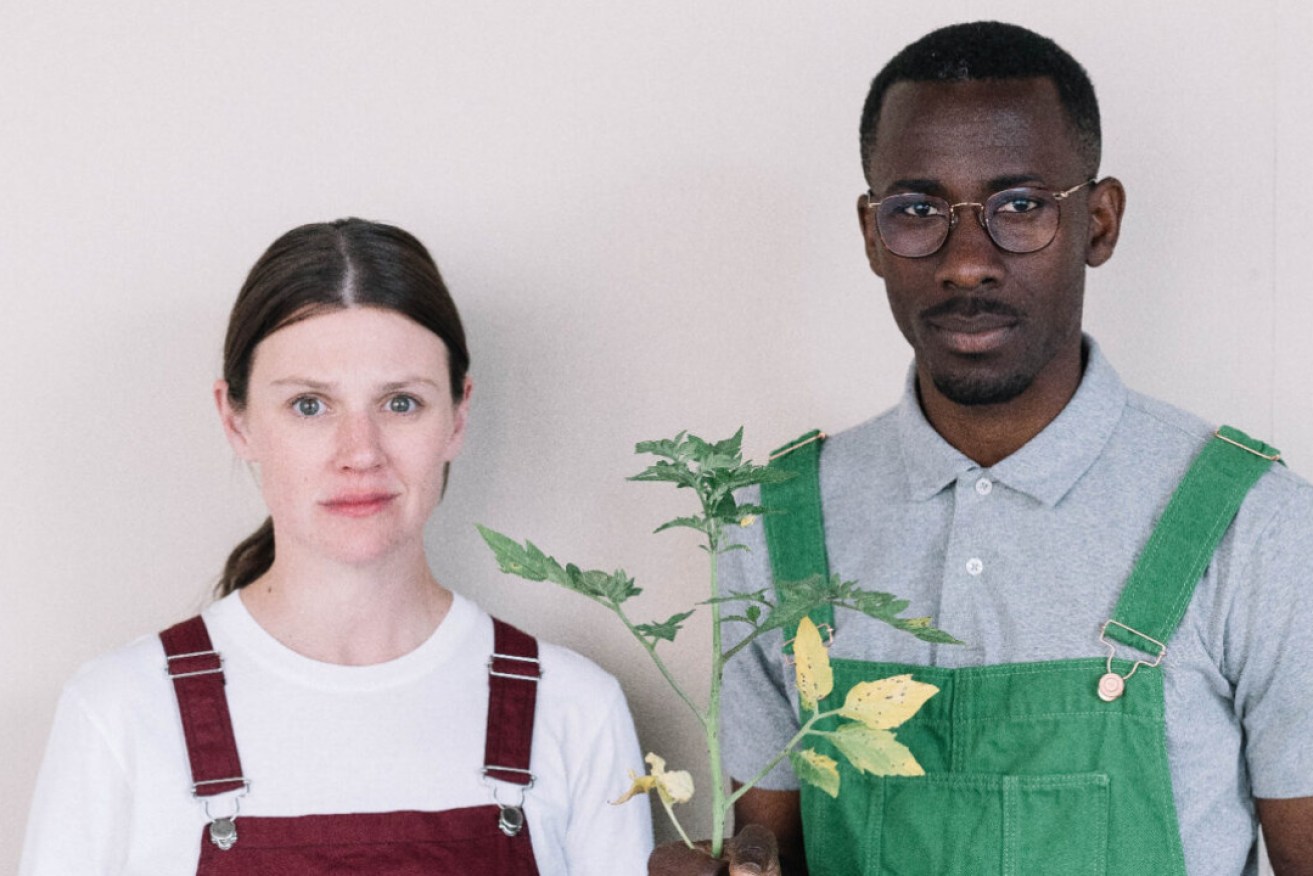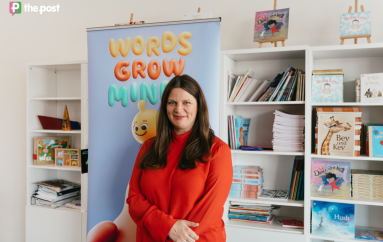Middle-class guilt takes root in The Garden
Centred on a community garden, Theatre Republic’s new production uses this domestic idyll to connect with some of the big cultural themes in Australia right now.


Elizabeth Hay and Rashidi Edward in The Garden. Supplied image
Elizabeth Hay and Rashidi Edward have known each other a for a long time. Previously, they’ve even been cast in the same production of Hibernation, by the State Theatre Company.
“We did a play together, but we never shared a scene or spoke to each other,” says Edward.
“We’re pleased that we finally get to work together, properly,” adds Hay, in reference to Theatre Republic’s upcoming production, The Garden.
Written by award-winning playwright Emily Steel (Euphoria, 19 Weeks and How Not To Make It In America) The Garden centres around a community garden run by single mum and volunteer coordinator Evelyn (Hay). Adam (Edward), a refugee on a humanitarian visa, hopes to join as the garden’s newest member.
“I was interested in middle-class guilt about the environment, and how ineffectual and self-serving our efforts to do right by the planet – and each other – can be,” says Steel.
“Even in a seemingly idyllic community setting, there are tensions and divisions. Who is welcome? What is valued? Who does the work? Those are some of the questions.”
Steel has spent the past year collaborating with Edward and Hay to build their characters.
“Emily has really worked with both of us about ways to make the characters feel authentic and make sure they are having real and complicated experiences,” says Hay.
“I suppose Emily’s taken a little bit from Rashidi and my personal experience, as almost like a starting point.
“I do have a young son. Emily and I have that in common!”
“And I am from a refugee background, like my character is,” adds Edward.
“Which is kind of where it ends, for both of us,” says Hay, laughing with Edward, as they both know the depth and complexities of the characters, but are reluctant to give anything away.
However, the layered characters have even encouraged some self-reflection from the cast themselves.
“We keep focusing on Adam’s background, on where’s he from, what journey he’s had to go through in order for him to get here,” says Edward.
“We keep forgetting to talk about him as just a human being,” perhaps a reflection on how, broadly, those who experience trauma or hardship, can simply be reduced to their struggles by others.
“He’s a family man. You know, even though he doesn’t have his family here, you can see he loves connecting with people in one way or another.
“He enjoys this community, this garden community, for a particular reason: to connect with his past.
“The only way he can connect to it is through planting and gardening.”
Thematically, Steel covers a lot of ground in her latest work.
“She’s really good at making huge issues appear clear in a domestic setting,” says Hay.
“We’ve been pulling out themes like racism, sexism, and climate change.”
“Human connection,” adds Edward, “It’s about things that we see every day, people that we see on the streets or maybe next door.”
Equality is another theme that emerges, particularly in how The Garden sits in the cultural and social discourse throughout Australia at the moment.
“I think it really does connect with Australia right now,” says Hay.
“It’s a strength of Emily’s writing. But also, I’ve been aware as we’ve been reading through it, and noticing that Emily’s pretty good at not placing her work anywhere in particular, so that it can translate anywhere.”
Edward agrees, saying it can resonate universally.
“I’m not even sure that we mentioned the word ‘Australia’ at a particular point in the play.
“It’s just, ‘This country! This country! This country’.”
“And we don’t mention where Adam’s from,” adds Hay.
“I think that’s pretty deliberate, because I think the other part of it is that her writing is subtle enough that you almost take what you will from it.”
“That’s what I love about it,” says Edward.
“She just puts a mirror in front of you and she makes you see these big questions, and she doesn’t answer them for you.
“You don’t go back home all comfortable. You get to look at your life, yourself, and how you conduct your everyday life, which is a beautiful thing.”
This approach isn’t unique for Theatre Republic. In fact, as Edward and Hay say, it’s exactly what audiences have grown to expect, particularly from director Corey McMahon.
“Corey’s got a quite a distinct style,” says Hay.
“There’s no fat. It’s really a lean script. It’s a lean performance, and audiences who’ve seen Emily’s work and Corey’s Theatre Republic work will have a familiarity.”
Moreover, the pair believe Theatre Republic’s trademark has never been more important.
“Theatre Republic’s a really important part of the South Australian and national landscape of the industry,” says Hay.
“Especially, the way things are at the moment, I hope that everybody’s encouraged to support them and, as a company, they just grow and keep making works like this, that look things directly in the eyes.”
The Garden is at the Adelaide Festival Centre’s Space Theatre, from October 11 – 14, 2023.
This article is republished from InReview under a Creative Commons licence. Read the original article.
InReview is an open access, non-profit arts and culture journalism project. Readers can support our work with a donation. Subscribe to InReview’s free weekly newsletter here.
![]()




